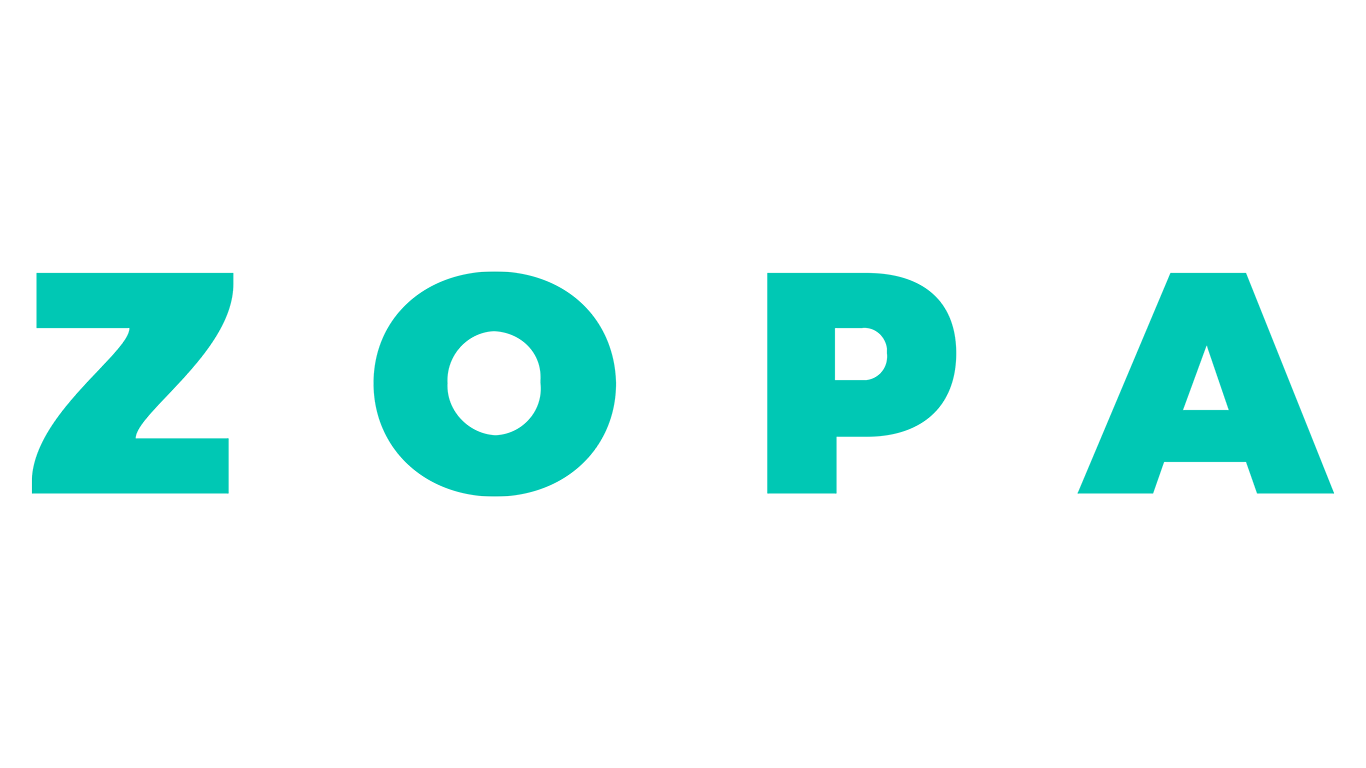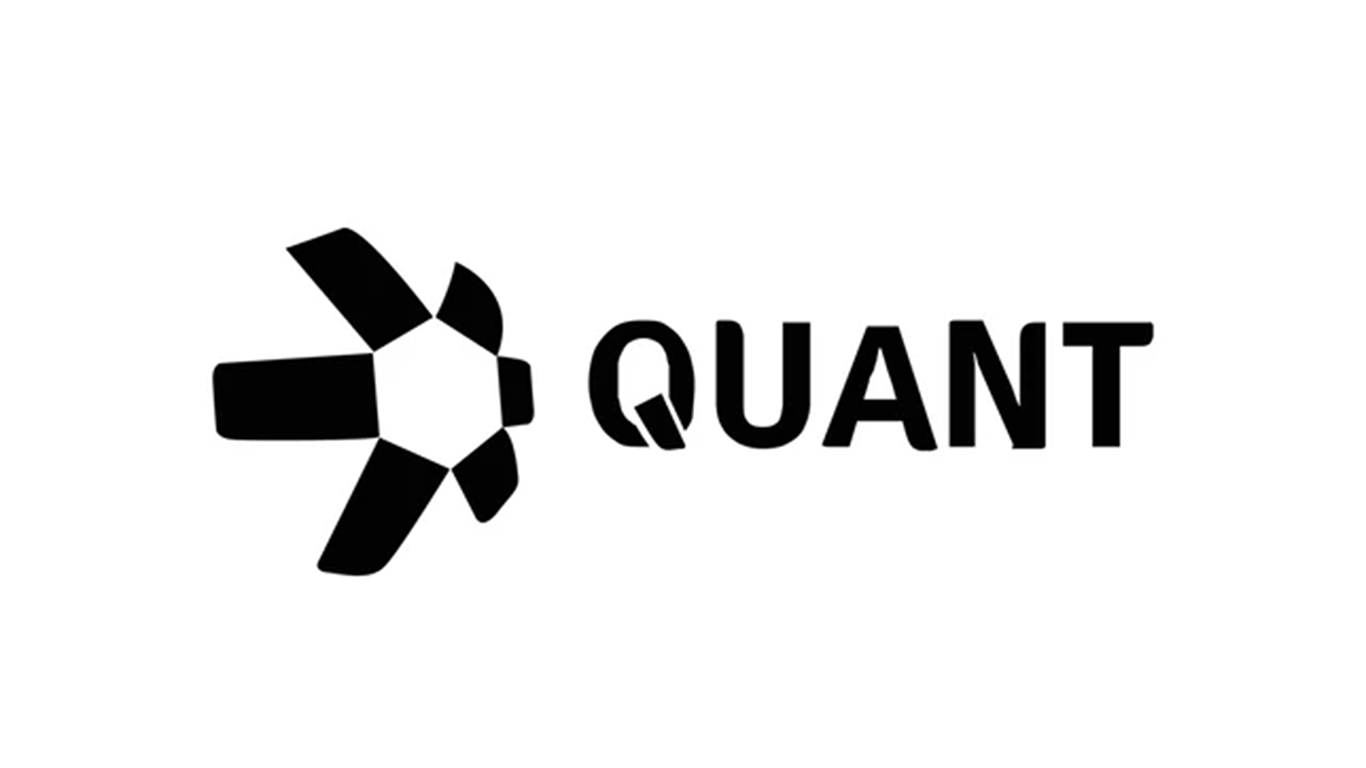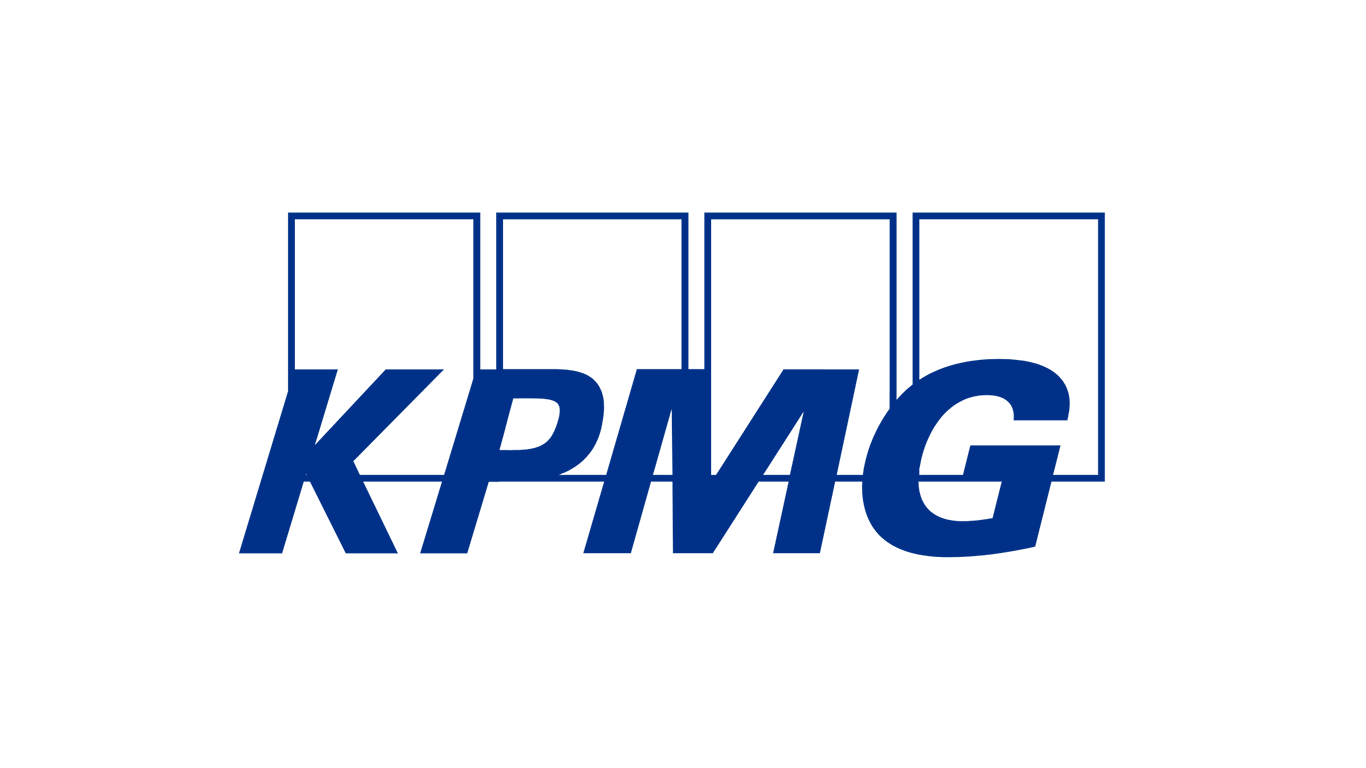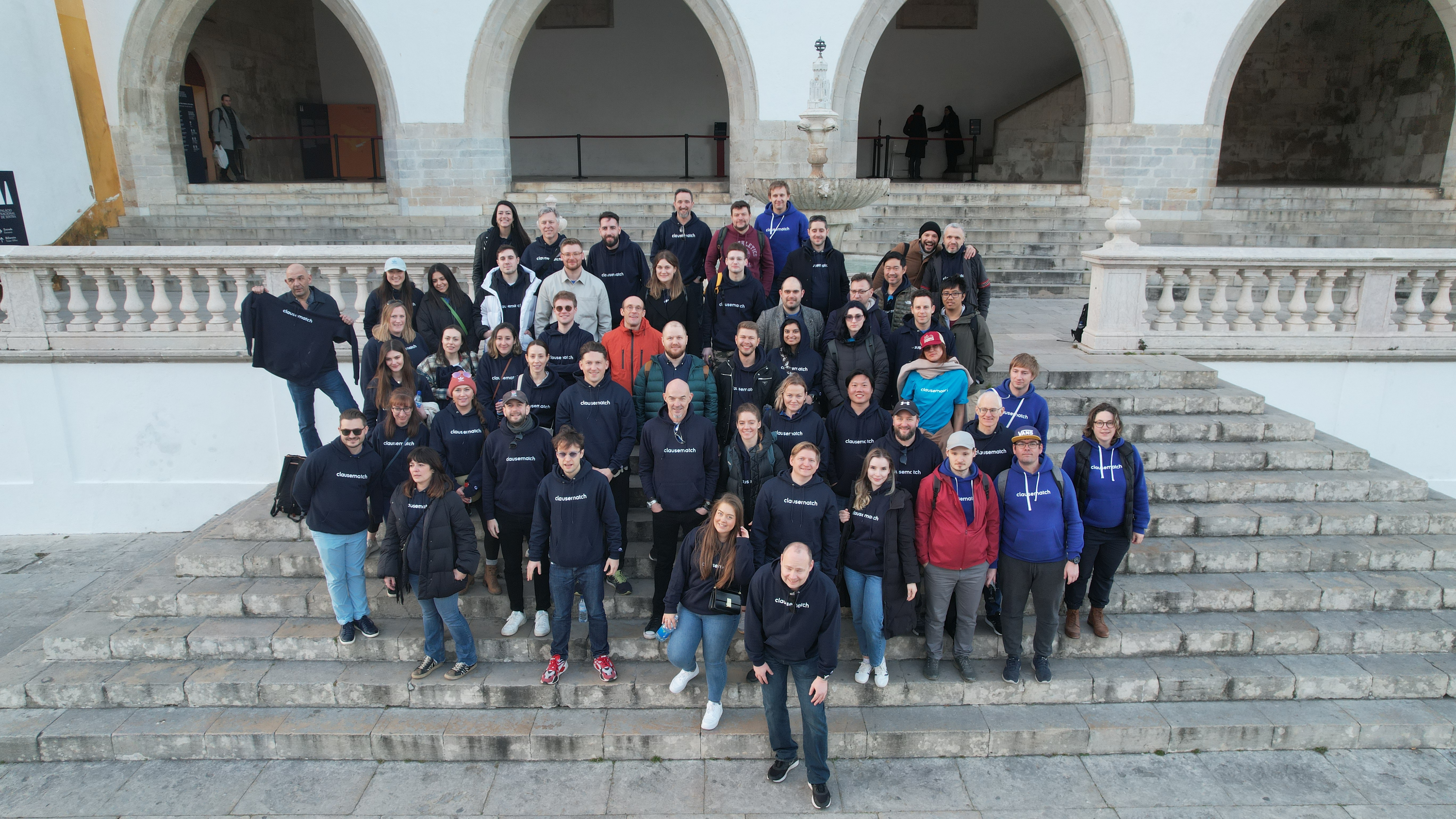Published
- 06:00 am

Zopa is set to acquire DivideBuy’s point-of-sale (POS) finance technology and lending platform. The transaction, which will complete in the next few months, marks Zopa’s first acquisition.
Embedded finance is a $7.2 trillion opportunity globally, according to Dealroom. The deal is expected to increase Zopa’s revenue by at least 20% in the next few years.
This move is a response to the consumer's need to simplify their finances. Together, Zopa and DivideBuy will bring a simple and fair solution for larger purchases (£250 - £30,000) that may otherwise take customers months or years to save for.
The BNPL 2.0 offering will combine technology and fintech innovation to enable instant decisions and fully integrated consumer journeys with consumer protection, credit checks and safeguards of a regulated bank.
Zopa’s BNPL 2.0 lending will aim to:
- Only offer affordable credit by running credit checks and affordability assessments for all customers
- Share data with credit rating agencies (CRAs) to give other lenders a full picture of people’s debt positions
- Help customers to better consolidate, structure and pay down their debt using its proprietary tools
- Enable users to build their credit profiles and improve their financial positions
Jaidev Janardana, CEO at Zopa, said: “This acquisition helps us bring to life BNPL 2.0, an evolution of BNPL which we believe delivers the easy, integrated product which customers love whilst also addressing some of the issues around affordability and responsible lending which have plagued the sector.
“We are proud to be entering the POS space with DivideBuy, a market-leader with a standout product and technology stack, and a culture that is closely aligned to our values of fairness and customer-centricity.
“Combining DivideBuy’s POS financing solution with Zopa’s best-in-class underwriting capabilities, regulatory permissions, and access to funding will enable digital-first journeys that bring new value to merchants and consistently delight customers. We are thrilled to welcome DivideBuy into the Zopa family.”
With DivideBuy, merchants can offer their customers interest-free payment options at checkout. Shoppers can spread the cost of their purchases over a 2-12-month period with over 400 merchants.
The application process is quick and easy, giving an instant credit decision without hidden fees or early repayment penalties.
Some of the UK’s most iconic consumer brands like Emma, Simba, Swyft, and Nectar already use DivideBuy to offer customers more payment options and drive better outcomes for both them and their customers.
Robert Flowers, CEO at DivideBuy said: “We were delighted to be approached by Zopa in its search for a POS finance provider to support its vision of building Britain's best bank. DivideBuy's product, technology and culture align perfectly with Zopa's values and brand strength, making this an ideal fit for the future of lending. Our LendTech solution will enable Zopa to leverage its core lending capabilities and build a market-leading POS finance solution.
“DivideBuy's mission has always been to help make life more affordable. This deal with Zopa will bolster our current product suite to help us take POS finance further, faster - with ethical lending at the core. This approach will ensure we meet upcoming regulation head-on to deliver a BNPL 2.0 that's better for everyone.
“We're particularly excited for our people. Zopa and DivideBuy share a strong people-focused culture, and we're committed to empowering our collective teams with new upskilling and career opportunities. We look forward to the next chapter of growth as part of the Zopa Group."
Since launching in 2020, Zopa bank has attracted £3 billion in deposits, more than £2bn of loans on balance sheet, and issued close to 400,000 credit cards.
Zopa has been voted “Bank of the Year” 2022 at the AltFi Awards, and previously “Best Personal Loan Provider” and “Best Credit Card Provider” at the British Bank Awards.
Related News
- 09:00 am

Less than 4% of Pakistani consumers and businesses take bank loans. Helping banks offer their customers real-time loan products, Pakistan’s first end-to-end digital lending infrastructure provider AdalFi is today announcing a $7.5 million funding round. The funding round was led by COTU Ventures, Chimera Ventures, Fatima Gobi Ventures and Zayn Capital alongside angel investors including execs from Plaid.
With AI-powered credit scoring and underwriting models, AdalFi has built the critical infrastructure to power smart, instant loans for consumers and SMEs in Pakistan. These include unsecured loan products such as term loans, credit cards and revolving finance facilities for consumers and SMEs respectively. The AdalFi tech stack also includes pre-built, bespoke customer journeys and integrations with major banking platforms. AdalFi has quickly signed up 14 banks (including 7 out of the top 10), on its mission to promote financial inclusion as it unlocks access to credit to millions of people and small businesses.
AdalFi’s proprietary technology scores the financial transactional data already possessed by banks, enables personalized digital marketing to qualified prospects and, finally, provides the customer journeys which are embedded within the bank’s digital presence to enable real-time disbursement of loans.
AdalFi operates on an asset-light, revenue-sharing model with banks which captures any downside risk exposure to banks such that any loan losses are accounted for, pro-rata, in fees due to AdalFi. These deep partnerships ensure banks and AdalFi are completely aligned in that AdalFi only makes money from loans that are actually paid back.
Salman Akhtar, CEO and co-Founder of AdalFi commented: “Pakistan has 50 million bank accounts yet only 2 million of these individuals and businesses have any credit relationship with their bank. The high cost of loan origination driven by physical verification of identity, assets and financial health (in the absence of credit scoring) has restricted credit access to a thin, top-tier of customers. AdalFi’s digital lending platform allows partner banks to instantly credit score the other 95% of their existing customers who have never been lent to and cross-sell loans to them.”
Salman Akhtar added: “In essence, we have built better underwriting models for banks. Not only have we lowered the cost of credit scoring and underwriting and therefore the cost of credit but we changed their outlook and got them to change their approach. Banks have been drawn to AdalFi because we offer rigorous credit scoring to ensure portfolio quality with zero-cost customer conversion (from depositors to borrowers). Moreover, we enable a breakthrough in customer experience with instant, smart loans which completely transform customer value delivery.”
“AdalFi is riding a double wave of digitisation. Firstly, a behaviour change is underway as customers go digital, banking app transaction volumes in Pakistan already exceed in-branch numbers. Secondly, the technology shift, pioneered by us, with credit scoring and digital journeys enabling instant loans. The AdalFi tech stack enables frictionless loans for qualified customers who are already living in a digital, mobile-first world.”
Since its launch in July 2021, AdalFi has grown the Gross Loan Volume (GLV) enabled by its Digital Lending Platform at 30% month on month for the last 19 months. Over 70,000 loans have disbursed to date with a default rate well under 0.1%. Through December 2022, AdalFi enabled a cumulative Rs. 1 Billion in GLV. In January 2023 alone AdalFi generated Rs. 390 Million in lending and is on track to exceed Rs. 1 Billion within Q1 2023.
“Salman excited us from our first interaction. Him and his team’s level of experience and track record building software for financial institutions is a rarity in this space. When you combine that with the innovative solution that AdalFi offers, specifically with its AI-powered scoring model that is scalable and frictionless, you have all the ingredients to massively transform the credit industry. The fact that they have already secured partnerships with the leading banks in the country, and have already facilitated new unsecured lending channels for their clients in such a short space of time, gives us confidence that they have an incredibly exciting future ahead of them.” said Amir Farha, Managing Partner at COTU Ventures.
AdalFi's vision for the future is to continue to drive innovation in the lending space, providing consumers and SMEs with the best possible experience by powering the lending infrastructure across a wide range of products and channels. The company aims to be the premier digital lending solutions provider in the APAC region and beyond.
Salman Akhtar concluded: "Our rapid growth is a testament to the need for such solutions in the lending space, and we look forward to continuing to drive positive change in the industry."
Related News
- 01:00 am

WealthKernel, a leading provider of digital investment infrastructure, today announces the appointment of Mike Rigby as its new Chief Compliance Officer.
Mike is a Chartered Accountant and has over 30 years of experience in compliance and risk. He joins WealthKernel from Investec Wealth & Investment, where he held the position of Executive Director and Chief Risk Officer.
At Investec Wealth & Investment, Mike was responsible for managing the framework designed to identify and address regulatory, operational, data and financial crime risks arising in the business. He also chaired the Risk Management Committee and the Board of Investec Wealth & Investment Trustees Limited.
In his new role as the Chief Compliance Officer, Mike will lead the compliance, risk and financial crime function across WealthKernel and manage the day-to-day relationships between the regulator and the company.
Mike Rigby, Chief Compliance Officer, says:
I’m excited to join WealthKernel during a pivotal moment for the company and the economy. With growth comes new challenges, risks and obligations, particularly in the current climate of economic uncertainty. I look forward to contributing to the company's strategic growth and
maintaining a robust compliance and risk framework to help identify and address potential issues and meet our compliance and regulatory obligations.
Karan Shanmugarajah, CEO of WealthKernel,says:
We’re thrilled to have Mike join our team at WealthKernel. His extensive experience and expertise will play a key role in helping us build and maintain our reputation as a trusted and reliable partner for companies looking to offer digital wealth and investment services.
Related News
- 07:00 am

PPRO, the leading digital payments infrastructure provider, has extended its infrastructure to the South Korean market through integrating South Korean local cards and Toss Pay, one of the most popular e-wallets in South Korea onto its platform.
Toss is South Korea's leading financial service platform, operated by Viva Republica, that reaches a total of 24 million users (or more than a third of South Korea's population) as of Feb 2023. Also Toss Pay, its e-wallet service for purchases made with a card or an account linked to the Toss app, makes payments at any partner merchant with the Toss app, without the hassle of an additional sign-up or registration process. The addition of local cards and Toss Pay opens up a gateway for PPRO’s global partners, payment service providers and their merchants, to reach millions of South Korean consumers.
According to research, consumers in South Korea have an appetite to spend larger than average amounts online, with an estimate of 94.7% of young South Koreans having purchased goods and services online in the past year. The country is also poised to become a leading global e-commerce market expanding at a double-digit compound growth rate (CAGR) of 13.6% by 2024. In fact, digital payments have almost become the de facto mode of payment in South Korea, with PPRO’s data revealing that cards make up 66% of usage with digital wallets standing at 22.
Tristan Chiappini, VP and Head of Partnerships APAC at PPRO, said: “South Korea has always been a frontrunner when it comes to digital payments. The integration of local cards and Toss Pay into PPRO’s infrastructure comes at the request of some of our largest customers and their tier 1 merchants that are struggling with poor conversion rates whilst relying on traditional global rails. Given PPRO’s infrastructure allows for instant access upon launch of new local digital payments, markets, and other orchestrated services this frees up our partners’ roadmaps and instantaneously expands their reach into the South Korean market with consumers who are eager to shop cross-border. ”
Peter Lim, Lead Global Business Development of Toss Payments, commented: “As one of the largest e-commerce powerhouses in the world, South Korea presents a huge opportunity for international merchants looking to accelerate their growth in the Asia Pacific region. Our partnership with PPRO enables digital-first consumers in the country to shop with a diverse network of merchants using Toss Pay, the favoured payment method that they know and trust when making purchases online.”
Related News
- 04:00 am

Quant, the blockchain for finance pioneer, is among the participants of the recently approved working group developing a new internet protocol which will make the transfer of digital assets more secure and DLT networks more interoperable.
Alongside colleagues from MIT, IBM, EY and others, Quant put forward a charter that has led the Internet Engineering Task Force (IETF) to form the Secure Asset Transfer Protocol (SATP) Working Group. The Working Group will develop the SATP, a new technical standard for the Internet.
The protocol aims to enable the transfer of assets across DLT networks in a secure manner. This will be achieved in part through standardising communication between networks and securing transactions across networks.
This working group comes at a critical time for both the digital asset community – whose focus is on encouraging ease of movement of assets – and the internet, as it attempts to evolve into a modern, sophisticated internet of DLT networks which provide better security.
“Having the proposal officially designated a working group by the IETF is a great achievement and a reflection of Quant’s commitment to security,” said Claire Facer, Product Manager at Quant and co-chair of the SATP Working Group.
“We see a ‘networks of networks’ future - much larger than the current internet networks of today - transacting data, information and value. If approved, the SATP will be a core infrastructure akin to today’s internet routers operating with border gateway protocol.”
Thomas Hardjono, Director at MIT Internet Trust Consortium and member of the SATP Working Group said: “We are very pleased and extremely grateful to the Quant team for supporting this IETF protocol development from the beginning. We’re looking forward to working together to solve the intricate problems in digital assets.”
Related News

Jamie Haerewa
Managing Director at Agile HRO
As companies continue to expand their reach across the globe, navigating the complexities of international payroll has become a daunting task. see more
- 02:00 am

Overall fintech investments in Singapore saw a year-on-year rise, hitting a three-year-high of US$4.1 billion across 250 deals in mergers & acquisitions (M&A), private equity (PE), and venture capital (VC) in 2022, according to the KPMG Pulse of Fintech H2'22. 2022's total deal value here saw a 22 percent increase, up from US$3.4 billion in 2021, and a 75 percent increase from 2020's total deal value of US$2.3 billion. The 2022 figure is also the second highest fintech investment achieved by Singapore in the past decade, after investments peaked at US$5.62 billion in 2019 just before Covid-19.
Singapore's 2022 positive showing comes against the backdrop of falling global fintech investment. After reaching a record US$238.9 billion across 7,321 deals in 2021, total global fintech investment across M&A, PE, and VC dropped to US$164.1 billion across 6,006 deals in 2022. While results were substantially lower compared to 2021's peak highs for the world, 2022 was not a poor year as a whole. In fact, it was the third best year for global fintech investment and the second strongest year for global deal volume in the past decade.
Globally, the top three areas for fintech investment in 2022 were Payments, followed by Crypto/Blockchain and finally RegTech. In Singapore, these top three areas of fintech investment were Crypto/Blockchain, followed by Payments and finally WealthTech.
Regionally, the Americas remained the dominant force of fintech investment globally, accounting for US$68.6 billion in investment in 2022; the US accounted for US$61.6 billion of this total. The Asia-Pacific region reached a marginal new high of US$50.5 billion during 2022, while the EMEA region attracted US$44.9 billion. While the payments space attracted the largest share of fintech funding in 2022 (US$53.1 billion), Regtech was the hottest sector of the year, with investment rising from US$11.8 billion in 2021 to US$18.6 billion in 2022.
"2022 was a tale of two fintech markets. The variance between the first half of the year and the second highlights the rapid shift in investor sentiment amidst a combination of challenges—high inflation and rising interest rates, the lack of IPO exits, the downward pressure on valuations, and, of course, the turbulence in the crypto space," said Anton Ruddenklau, Global Head of Financial Services Innovation and Fintech, KPMG International. "But the news wasn't all negative. Regtech, in particular, saw incredible investment in 2022, while seed-stage deals received excellent attention from investors after years of late-stage deals getting priority."
KEY TRENDS
1. Investors shift to non-crypto blockchain-based solutions
Global investments in crypto and blockchain fell to US$23.1 billion in 2022 from US$30 billion in 2021. The decline was particularly noticeable in the second half of the year as investor sentiment related to the consumer crypto space and crypto exchanges plummeted following the Terra (Luna) crash in late H1'22 and the bankruptcy of crypto hedge company Three Arrows Capital in July. In Singapore, cryptocurrency and blockchain funding in Singapore also declined 21 percent from US$1.5 billion in 2021 to US$1.2 billion in 2022.
Given the FTX bankruptcy in November, it is likely that investment in crypto-focused firms will remain very slow into H1'23 as many investors work to review and significantly enhance their due diligence and governance processes related to investments in the crypto space. There could also be a shift in investment to jurisdictions with stronger regulatory frameworks for crypto activities.
With consumer crypto offerings losing their lustre, investors have started to turn their attention to broader blockchain-based solutions and value propositions. This includes investing in blockchain-based technologies that underpin solutions to real-world problems, such as conducting real-time payment settlement pre-validation, streamlining cross-border payments and tokenising assets.
One trend seen in 2022 that is expected to grow heading into 2023 is the shift of investors from blockchain companies focused on the retail market to startups focused on providing solutions for the SME market. One area increasingly attracting attention is the provision of SME-focused decentralised finance (DeFi) solutions, including solutions focused on SME loan financing or trade financing.
2. Payments remains a hot space in the fintech market
Globally, payments remain the strongest area of fintech investment in 2022, with US$53.1 billion in investment compared to US$57.1 billion in 2021. In Singapore, funding for payments rose 57 percent from US$628.4 million in 2021 to US$984.8 million in 2022.
A popular source of alternate financing, Buy Now Pay Later (BNPL), continues to drive interest despite valuation and regulatory challenges faced by firms. With inflation high and interest rates rising, BNPL companies will likely continue to have their margins challenged. Despite the challenges faced by some standalone BNPL firms, there continued to be momentum in the space, particularly on the part of corporates looking to embed or create their own BNPL offerings.
Interest in embedded payments also continued to grow during 2022, spanning a wide variety of sectors — from retail and e-commerce to gaming and ride-hailing. Corporates showed particular interest in the space, likely as a means to extend their customer value.
3. Cost of compliance remains key driver of regtech interest
The regtech space was a bright light of fintech investment in 2022, attracting a new high of US$18.6 billion in investment — well above the previous record of US$12.1 billion seen in 2021.
The ever-increasing cost of compliance is a major challenge for financial services companies everywhere in the world, with multinational companies particularly challenged to manage their compliance across multiple jurisdictions. With no end in sight to regulatory change both globally and in individual jurisdictions, it's not surprising that regtech investment climbed for the fourth year in a row during 2022 as investors and corporates embraced regtechs able to provide simpler, cost-efficient and sustainable solutions for managing compliance requirements.
The growth of digital banking, digital payments and crypto in different jurisdictions over the last few years has driven significant investment in regtech aimed at ensuring that such transactions are accurate, transparent, reliable and compliant. Recently, investors have shown very strong interest in companies able to provide multi-dimensional services. For example, in 2022, US-based Cross River Bank raised $620 million in PE funding to grow its fintech-focused compliance offerings, aimed at enabling a broad range of financial services activities, including payments, marketplace lending, banking-as-a-service platforms, capital-markets, and other digital banking activities.
That said, Singapore may have some way to go to attract fintech investments in this space. Locally, there was a 5 percent decline in Regtech deal value to US63.30 million in 2022, from $66.63 million in 2021.
4. Expanding access to a broader base of investors
The wealthtech sector globally attracted over $1.2 billion in total investment during 2022 — a very strong year, despite the decline from 2021's investment peak of $2 billion. Singapore also experienced a wealthtech sector rally attracting US$500 million in fintech investments in 2022, up from US$29.60 million in 2021. H2'22 saw the two largest wealthtech deals of the year, including the $323 million acquisition of UK-based Pollen Street Capital and the $300 million raise by Singapore-based crypto firm Amber.
This comes as a growing number of wealthtechs have, over the past year, focused on developing solutions able to give a broader base of investors unique access to asset classes that have typically only been used by institutional or high net worth investors – such platforms are able to cost-effectively facilitate fractional investments which traditionally had a high minimum investment.
Recognising that investors today have a wealth of information at their fingertips, both traditional wealth management firms and wealthtechs have been grappling with ways to enhance the value they provide to their clients and to build deeper relationships to help with retention. This has led to increasing interest and investment in solutions intended to improve the wealth management experience.
GLOBAL HIGHLIGHTS
The sharp drop-off in fintech investment between H1'22 and H2'22—from US$119.2 billion to US$44.9 billion—highlights the rapidly shifting market conditions much more clearly. H1'22 saw numerous US$1 billlion+ deals, including eight M&A—including the US$27.9 billion acquisition of Australia-based Afterpay by Block, two VC raises—Germany-based Trade Republic and UK-based Checkout.com, and one PE deal—US-based Genesis Digital Assets.
H2'22 by comparison saw just three M&A deals over US$1 billion—all in the US, including the US$8.4 billion buyout of Avalara, the US$1.7 billion buyout of Billtrust, and the US$1.6 billion buyout of Computer Services Inc. The largest VC raise of H2'22 was an US$800 million raise by Sweden-based Klarna—in what was a significant rounding down (A). The largest PE deal was a US$250 million raise by US-based Avant.
1. US drives fintech investment in Americas; region sees record Seed stage investment
Fintech investment in the Americas was US$68.6 billion in 2022, with the US accounting for the vast majority of this total (US$61.6 billion). By comparison, Brazil attracted US$1.8 billion and Canada attracted US$1.3 billion in fintech investment. While total investment declined year-over-year in the Americas, angel & seed-stage deals attracted a record US$4.5 billion—up from US$3.4 billion in 2021. Angel & seed-stage deals also saw the median deal size rise from US$2.4 million to US$3 million year-over-year. The Americas also saw its second strongest year of CVC-participating investment in 2022, with US$18.2 billion of investment; the US accounted for US$14.9 billion of this total.
2. Fintech investment in Asia-Pacific rises to record US$50.5 billion in 2022
Fintech investment in the Asia-Pacific region climbed to a slight new record high in 2021, rising from US$50.2 billion in 2021 to US$50.5 billion in 2022. The US$27.9 billion acquisition of Australia-based buy now, pay later company Afterpay by Block in H1'22 accounted for over half of this total. The impact of the one megadeal was particularly noticeable when looking at H1'22 and H2'22 results separately—with fintech investment in H2'22 just US$5.8 billion, compared to the US$44.6 billion seen in H1'22.
As a result of the Afterpay acquisition, Australia led fintech investment in the Asia-Pacific region—with US$30.2 billion of investment. Despite a decline from 2021's US$7.9 billion, investment in India remained robust at US$6 billion. Singapore saw fintech investment rise from US$3.4 billion to US$4.1 billion year-over-year. Fintech investment in China remained very weak in 2022 at just US$770 million.
3. EMEA sees large decline in fintech funding year-over-year
Fintech investment in the EMEA region dropped from US$79 billion across 2,379 deals in 2021 to US$44.9 billion across 1,977 deals in 2022. Investment in H1'22 was far more robust than H2'22, accounting for US$32.8 billion in investment compared to US$12.1 billion. The lack of US$1 billion+ fintech deals in H2'22 accounted for much larger drop-offs—with the largest deal in H1'22 the US$3.9 billion buyout of Italy-based SIA, compared to the US$840 million buyout of UK-based Nucleus Financial Group in H2'22.
4. Fintech investment likely to remain subdued heading into H1'23
With no end in sight to the macroeconomic challenges plaguing the public markets and the IPO window expected to remain closed well into the first half of 2023, fintech investment globally is expected to remain quite subdued, even compared to H2'22. While M&A activity could begin to pick up, deal sizes will likely be much smaller as investors wait for valuations of late-stage companies to settle. Regtech will likely remain one of the most resilient sections of fintech investment, in addition to B2B solutions within all fintech verticals. While investment in crypto is expected to be particularly weak in H1'23 as investors reconsider their due diligence processes and regulators consider tightening crypto regulations, the broader area of blockchain-based solutions—including institutional use cases, cross-border payments, gaming, and NFTs— will likely gain additional attention from investors.
Despite any short-term softness in the global fintech market, the long-term outlook for fintech investment remains quite positive given the ongoing transformation of financial services occurring in many different jurisdictions and the growing focus globally on embedding financial services offerings into other sectors."
With interest rates still rising, valuations are going to remain quite tricky for some time. This will likely keep a lot of the biggest potential M&A transactions on the shelf as investors wait to see if prices come down even further," said Anton Ruddenklau, Global Head of Financial Services Innovation and Fintech, KPMG International. "That said, M&A activity will likely increase for smaller size deals as corporates and larger fintechs look to buy fintech capabilities at good value."
Related News
- 06:00 am

Access to financing has long been a major hurdle for businesses eyeing growth. Against this backdrop, Visa, Froda and Lunar are announcing a global partnership and launching a new, innovative technology aimed at resolving these issues – for good. The product, which for the first time utilizes push-payment functionality for financing, aims to reduce transaction times to mere seconds. Ordinarily, this process would have taken months.
The fintech company Froda has formed a partnership with Visa to develop a brand-new loan solution for businesses. Initially, Froda and Visa are joining forces with the Nordic digital bank Lunar. Within the framework of the partnership, Lunar’s customers gain access to business loans through Froda’s proprietary embedded lending platform, featuring direct payments and repayments via Visa’s card. Visa’s presence in over 200 countries and territories provides a consistent experience regardless of market, making the product globally scalable.
– I am thrilled to announce our collaboration with Visa and Lunar to bring a new level of convenience and efficiency to the world of business lending for SMEs. Our goal was to create a new ecosystem within embedded lending that would offer entrepreneurs easy access to financing and instant payouts. With the support of Visa, we are able to offer this innovative solution to both neobanks and incumbent banks across multiple markets. We couldn’t be more excited about this partnership and look forward to seeing this new ecosystem grow, says Olle Lundin, CEO at Froda.
At a time when the economy is facing headwinds, access to financing becomes even more important for startups and small businesses looking to invest for the future. In order to support SMEs in the best possible way, it is crucial to find new ways to efficiently distribute SME financing. The solution aims to remove barriers by allowing loan repayments and payouts to be made directly through a payment card. Customers repay their loans through recurring card payments without having to track and manage monthly invoices.
– At Visa, we are constantly seeking new innovative ways to leverage the use of card infrastructure. The solution Froda has developed offers something new to the embedded lending ecosystem. We are very excited to be a part of this and can't wait to see the impact it will have on small business lending, says Philip Konopik, Regional Managing Director Nordics & Baltics at Visa.
By using Visa's infrastructure, the solution provides a consistent experience for customers regardless of market, without the need for adjustments to local invoicing and direct debit processes. Partnering up with card issuers will provide a source for transaction data to enhance credit scoring and the ability to present accurate pre-scored available credit to customers.
– It’s a fantastic opportunity to be a part of this collaboration as it allows us to offer our customers a fully digital experience with card enrollment as part of the loan application process. This eliminates the need for a separate enrollment for direct debit solutions or collecting details for invoicing. Additionally, the ability to make instant loan payouts through push payments ensures that our customers can access the funding they need quickly and efficiently, says Mats Persson Bergius, General Manager, Sweden, at Lunar.
The embedded lending solution will be accessible to Lunar's customers in Q2 2023, with the possibility for more SME card issuers to join.
Related News
- 07:00 am

TEMENOS today announced that Diner’s Club Ecuador has gone live with Temenos Core Banking, Payments and Analytics on the cloud with Amazon Web Services (AWS). The completion of the project marks the launch of Diner’s Club Ecuador as the first digital bank in the country.
Diners Club Ecuador was the first issuer of credit cards in Ecuador, and has become its largest provider, processing 75% of the country’s credit and debit card transactions. The company is a franchise of Diner’s Club International, which operates worldwide with an extensive network in more than 200 countries.
To launch its digital bank, Diner’s Club Ecuador selected Temenos’ modern, scalable, cloud-native banking platform. Temenos is the only banking platform readily available on all major public cloud providers for banks to run themselves or as a SaaS solution via Temenos Banking Cloud. Diner’s Club Ecuador opted to host Temenos banking platform on AWS, benefiting from 99.99% availability, flexibility to deliver innovative products, and scalability to support growth alongside the launch of new business lines. Diner’s Club Ecuador initially implemented deposit accounts, with plans to launch interest-bearing deposit accounts, advance billing services for businesses, and mortgages. The bank has already granted 14 million (USD) in loans. Temenos Analytics will also extend Diner’s Club Ecuador’s use of predictive models and AI beyond credit scoring and risk management to understand client behaviours in more depth and provide hyper-personalized services. By analyzing member behaviour, Diner’s Club Ecuador will be able to offer products based on buying preferences and create unique and relevant products like ‘one-click loans’ which the bank launched for current business clients.
Mónica Carrión, Vice President of Services Center Club Ecuador, said: “Our mission is to be a lifelong partner for our clients, helping them at every stage of their lives. We wanted to embrace a digital-first model, giving clients the flexibility to access our services online at the click of a button on a 24/7 basis. By launching the first digital-only bank in Ecuador with Temenos and AWS, we are setting the standard for banking innovation in Ecuador and within the Diners Club International franchise network globally.”
Rodrigo Silva, Senior Vice President – Sales for Latin America and the Caribbean, Temenos, said: “The barriers between e-commerce brands, technology companies, and financial institutions are lowering, opening up a new world of banking. Temenos empowers all participants in the banking ecosystem to operate efficiently, respond to market demands with agility, and deliver compelling experiences. We are offering our clients more choice in embracing the cloud through Temenos Banking Cloud as a SaaS offering or by running the platform themselves on any public cloud. By bringing together Temenos’ modern technology on AWS, Diner’s Club Ecuador will offer its clients seamless, hyper-personalized banking services that are revolutionary for our industry.”
Related News
- 06:00 am

Clausematch, a global regulatory technology company developing solutions for regulatory compliance, has launched a new office in Lisbon, Portugal, its first office in the Southern European country and third branch worldwide, in addition to established teams in the United Kingdom and North America.
The team of nine employees specializes in engineering and product development. Additional employees plan to join the Lisbon team in the coming months.
Launching an office in Portugal is part of Clausematch’s overall strategy to position itself as the world’s leading solution for policy management and compliance automation, according to CEO and founder Evgeny Likhoded. Bringing Clausematch to another region is in line with the company’s values of growth, diversity, and overall development.
“I am thrilled to help build our new Lisbon team. We intend to expand a strong Portuguese team to support our client projects globally,” said Likhoded. “Lisbon will provide a unique outlet for our engineering team, as it is quickly becoming an established tech outlet in Western Europe.”
Coordinating the launch of an office with nearly a dozen employees was not an easy task, as Administrative Head and Leader of the Portugal office, Ekaterina Petrushina explained.
“In 2022, we spent a lot of time and effort to achieve the goal of an engineering hub in Portugal,” said Petrushina. “We are nearly complete with the project, and it’s very rewarding to see that our employees are settled and happy to start life in such a warm and welcoming country.”
In the decision to launch another office in Europe, Clausematch was immediately drawn to Lisbon, as Portugal has made significant strides to become a hub for technology and innovation. Government officials have implemented a number of initiatives aimed at supporting the tech sector and attracting foreign investment, including tax incentives for startups and tech companies and investment in research and development. Additionally, there has been a focus on developing the tech talent pipeline through initiatives in Portugal, such as education programs and job training initiatives.
Since its conception in 2012, Clausematch has proved it is a leader in the regulatory technology industry. In 2022, the company doubled its annual revenue rate and increased its headcount from 50 to 71 employees. Last year, Clausematch successfully raised $10.8 million funding from Sony Innovation Fund, Lytical Ventures and Flashpoint VC, which helped it expand its product development, commercial, and operational teams, as well as boost investment in its growing North American team.
The expansion of a third Clausematch office into Portugal further reflects the emphasis of diversity in the company’s values. Of the more than 70 employees, there are more than 20 different languages spoken and more than a dozen nationalities represented.









